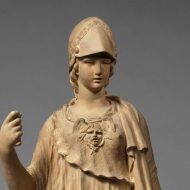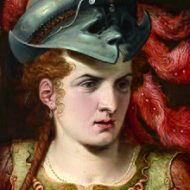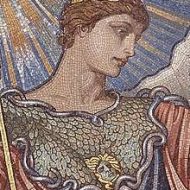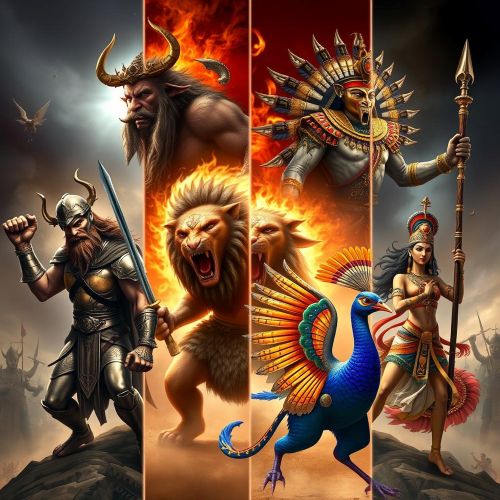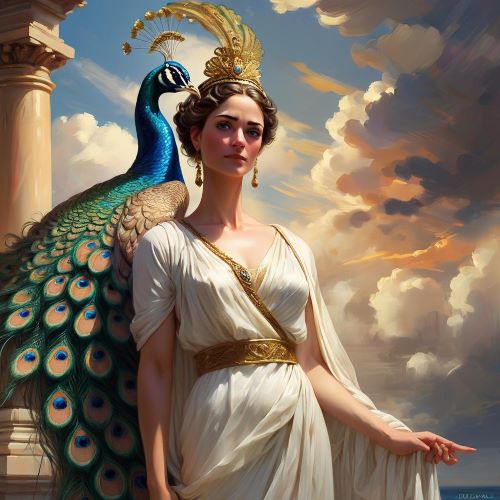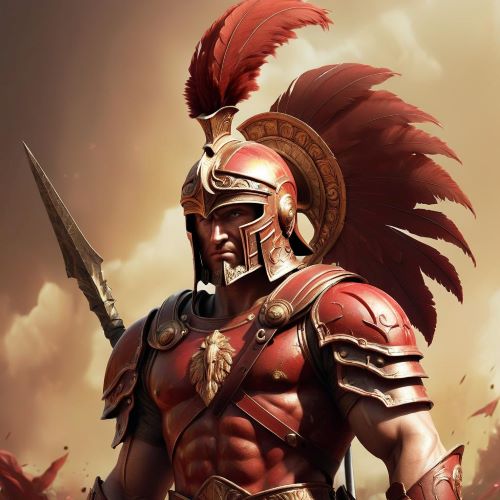Minerva : The Goddess of Wisdom
Listen
Minerva
Introduction
Minerva was the Roman goddess of wisdom and was known for her achievements in medicine, commerce, poetry, and the arts. Like the Greek goddess Athena, she was also known to have important temples in Rome. Her shrine on the Aventine in Rome was a meeting place for guilds of craftsmen, including at one time dramatic poets and actors.
Originally, she was an Italian goddess of crafts. Scholars believe that she was indigenous to the Romans derived from the Etruscan goddess Menrva and that her name came from meminisse, which means “to remember.” She was also worshipped as part of the Capitoline Triad along with Jupiter and Juno. In legends, Aeneas, who was a great escapee from Troy, brought a statue of the goddess to Rome, which was believed to keep the city safe from harm and was placed inside the Temple of Vesta.
Her worship as a goddess of war was an encroachment on the realm of Mars, who was the primary god of war. During the time of the Eastern conquests, a temple dedicated to her was erected by the nobleman Pompey. Emperor Domitian pledged allegiance to Minerva and made her the focus of the city’s worship.
Physical Traits
As a goddess of peace and the arts, she was known to wear a chiton, which was a set of long robes worn by women and men in ancient Rome. She also wore a crown of laurels and a set of Roman general’s armour. As a fierce warrior, she would often wear a soldier’s helmet and a small shield.
Family
According to the Greek mythology, Minerva was born fully armed and clad in armour, of the titaness Metis, the daughter of Jupiter. After Jupiter raped Metis, she tried to flee by changing her appearance. Jupiter then recalled a prophecy that he had made about his own child, who would eventually become his rival and overthrow him.
Fearing that his child would be male, Jupiter swallowed Metis by tricking her into shapeshifting into a fly. The Titaness then forged weapons and armour for her child while inside Jupiter’s body. Some believe that Metis was Jupiter’s source of wisdom, while others claim that she served as a vessel for the birth of his child, who would become known as Minerva. To relieve the pain caused by Metis’ pounding of the armor, the warrior god Vulcan used a hammer to split Jupiter’s head from which Minerva emerged.
Minerva had many half-siblings, including Mars, Bellona, Vulcan, and Juventus. Other half-siblings included Mercury, the messenger god of commerce, sailing, and travel, Venus, the goddess of love and sexual desire, and Proserpina, the maiden goddess abducted by Pluto. As a virginal goddess, Minerva never had any children of her own. She also never married.
Other Names
The name of the Roman goddess of wisdom was inspired by the Etruscan deity Menrva, also known as Menerwa. It was derived from the Italic deity Meneswa, who was associated with intelligence, virtue, and the moon. The name of the goddess also had a similar root to that of a Hindu deity known as Manasvini.
Powers and Abilities
As a patron of healing, she was known to visit a temple on the Mons Caelius, which was one of the hills of Rome. Her main temple was located on the Aventine Hill, which was near the guild halls of writers and actors. As the goddess of inspiration and skill, she was regarded as the patron of all who seek inspiration. The festivities surrounding the goddess’s birth were said to have been focused on securing her blessings as the Roman armies prepared to go to war.
Modern Day Influence
As a source of wisdom and symbol of patience, Minerva has served as a fitting insignia for many colleges and universities around the world. In The Wicked + The Divine, a character known as Minerva is featured as well as in the videogame Crisis Core: Final Fantasy VII. A non-speaking Athena/Minerva is also present in the Disney movie Hercules. In the Harry Potter series, Professor McGonagall’s first name is derived from the Roman goddess and she displayed traits that are similar to Minerva.
Related Images
Frequently Asked Questions
What is Minerva a goddess of?
Minerva, a Roman goddess of wisdom, strategy, and the arts, was also a protector of schools and craftspeople.
What does Minerva mean?
The name Minerva itself doesn’t have a direct meaning in English. It’s the Roman name for the goddess of wisdom, and some believe it might be linked to a Latin word for “mind.”
Who did Minerva marry?
Minerva, the Roman goddess, was traditionally depicted as a virgin goddess and wouldn’t have married in myths.
Is Minerva the same as Athena?
Minerva is very similar to Athena, the Greek goddess of wisdom and war. They share many characteristics and are often considered equivalents. However, Minerva might have some Etruscan roots before being fully adopted by the Romans.
Who was Minerva's enemy?
Minerva clashed with the Trojan army, the ancient Titans, and the prideful weaver Arachne.

